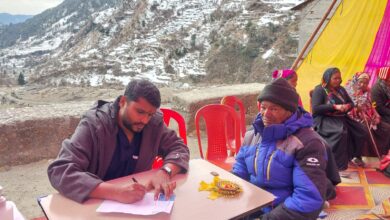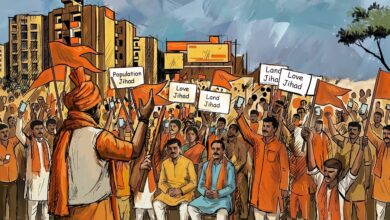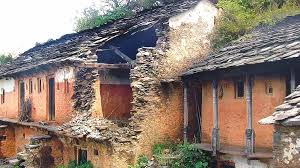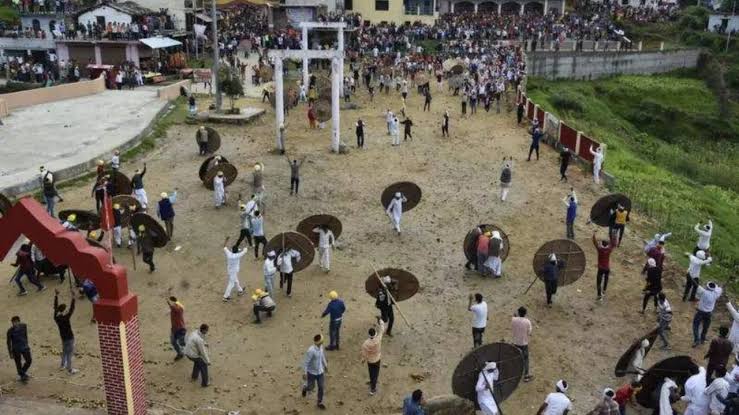
Traditional stone war -‘Bagwal’ to be played on Aug 12 at Devidhura
B.D.Kasniyal
Pithoragarh, Aug 11
“Bagwal”, a stone war, played traditionally on the occasion of ‘Raksha Bandhan’ festival every year at Barahi Devi temple of Devidhura in Champawat district of Uttarakhand state from time immemorial, will be played on August 12, this year.
“Due to restriction by court, the ‘Bagwal’ wil be played with fruits and flowers in place of stones, as used to be played earlier,” said Kriti Ballabh Joshi, main priest of Barahi temple.
The ‘Bagwa’l is played between four traditional clans of local landlords, ‘Lamgaria’, ‘Chamyal’, ‘Balig’ and ‘Gaharwal’ and is said to have began in ancient times when the goddess ‘Barahi’ used to take human sacrifice to please herself. As the human sacrifice used to be from each household of area by turn, a widow of ‘Chamyal’ clan, who had only a son as her heir, prayed to the goddess to save her son from being sacrificed at her altar. According to locals, the goddess agreed and since then did not take accept human sacrifice but instead demanded blood equal to that in a human body. So the villagers played ‘Bagwal’, a stone war, hitting each other to shed blood ,” said B.C. Joshi, ‘Peethacharya’ of the temple.
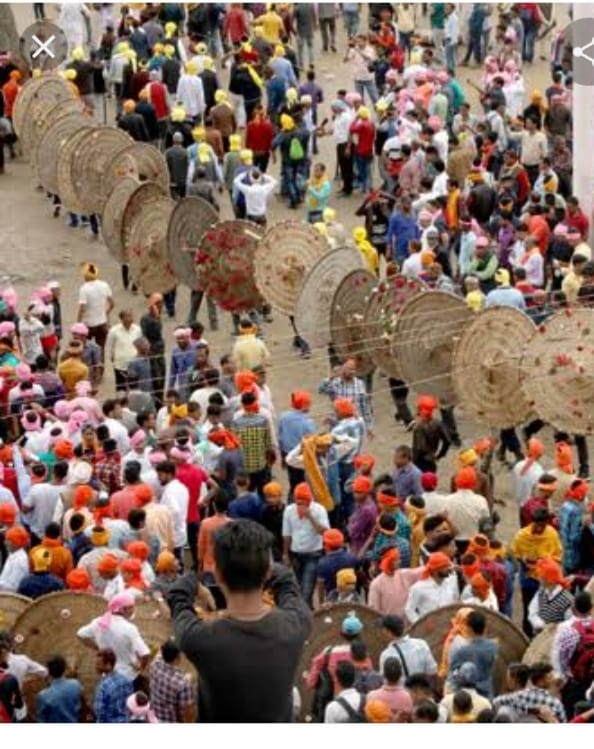
The method of worshiping goddess ‘Barahi’, by the way of ‘Bagwal’ is also unique. The programmes begin on ‘Shrawan Shukla Ekadasi’ when members of all four clans of landlords along with 7 other ‘Thokdars’, gather at the temple to worship the palanquin( sangi ) of goddess together. The ‘Dyokas’ or volunteers assigned by each clan to take part in the ‘Bagwal’ thereafter maintain personal purity for the day of ‘Bagal’ by not taking meals from anyone. “On the day of ‘Purnamashi’ ( full moon) all the volunteers meet under guidance of chief priest of the temple and worship the idol of deity put in closed doors of temple with all vedic rituals. After taking ‘prasad’ the volunteers named ‘Dyokas’, return to their homes for coming back with full preparation to take part in battle to be held at Kholi Khand ground,” said Rajendra Prasad Gehtori, a researcher of the subject.
According to Gehtori, the volunteers from all four clans take five ‘Parikramas’ (rounds) of Barahi temple before rushing to the ground.”The battle starts with blowing of couch by priest and begins without taking cover of shields ( made of Bambo grass to save one from stones ). The volunteers take help of shields only when the stone war gets full momentum ,” Gehtori said.
As the stone war starts, one of the priest starts worshiping goddess ‘Barahi’ at the temple with vedic rituals and after getting intution from goddess that the blood equal to that of in one man’s body has been shed in the ‘Bagwal’, moves to the ground. “He directly reaches in between the fighting groups and stops the stone throwing war. Interestingly, no priests till date has been injured by stones,” said Gehtori.
According to the villagers the wounds incurred in the battle are treated by sting grass or ‘Bicchu ghas’, a local herb instead of any medicine.
This year, Uttarakhand Chief Minister and local MLA, Pushakar Singh Dhami will be chief guest of the programme.
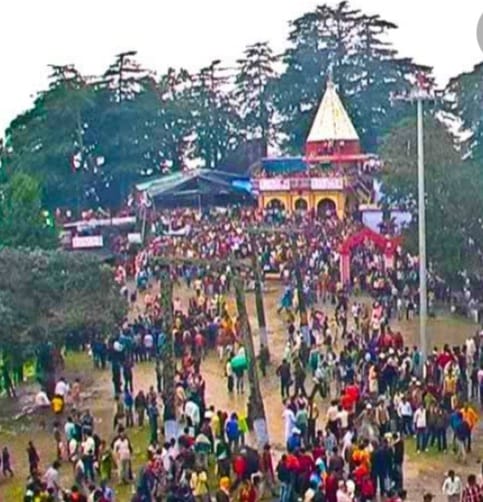
According to Hindu tradition ‘Barah’ (the boar), is the 3rd incarnation of Lord Vishnu, who took this incarnation to recover goddess earth after a devil ‘Hiranakshya’, submerged the earth. The ‘Baraha’ incarnation of Lord Vishnu rescued the earth from water and made it worth living.” ‘Barahi’, according to Hindu mythology is better half of ‘Baraha’ and worshiped as ‘Vajra Barahi’ as a ‘Tantrik’ form of ‘Shakti’,” said the Ppeethacharya.
According to an article written by a researcher, Marie LecomteTilouine, in the book, ‘Himalaya, past and present ‘ Volume IV, Newar community of Kathmandu valley of Nepal have developed a cult of feminine form of ‘Baraha’ as goddess ‘Barahi’, in the valley area, and the writer has quoted the neighbouring villagers of ‘Vajra Barahi’ temple in that area, saying that the ‘Vajracharya’ priest of temple at Chhpagaon temple of ‘Barahi’ offer human sacrifice to the deity, once in seven years, on the occasion of Desain festival celebrated on ‘Vijayadashami’ day in Nepal.
“It seems the tradition of worshiping goddess ‘Barahi’ as a form of ‘Shakti’, had reached Kumaon region from Nepal, ” claimed Rajendra Gehtori, a researcher on the subject.



